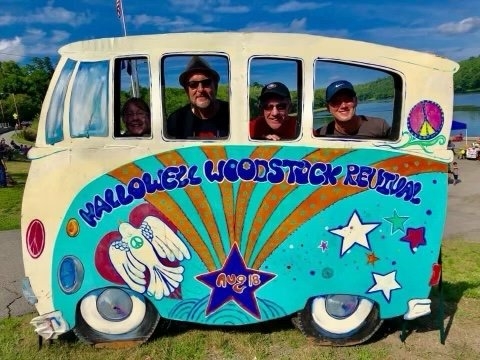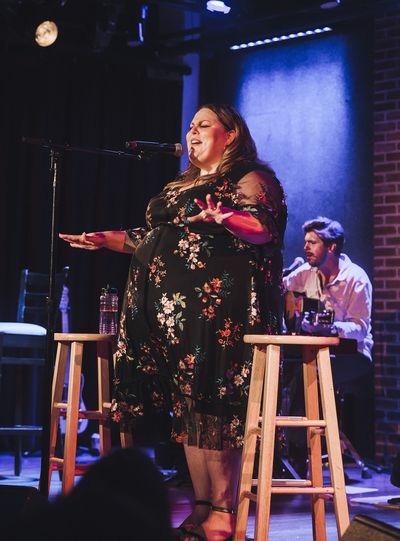UPDATE: Carlos Santana collapsed onstage during a performance in Michigan on Tuesday. Santana, 74, “was overtaken by heat exhaustion and dehydration,” his manager said. The legendary rock guitarist was taken to an emergency room for observation, the manager said, and “is doing well.”
Santana’s scheduled Wednesday performance in Pennsylvania has been postponed. As of early Wednesday, no changes had been announced to his scheduled performance at Riverbend on Saturday.
The following Q&A with Santana was put together before his Tuesday concert collapsed.
Legendary rock fusion guru Carlos Santana graces the Riverbend stage Saturday, July 9. Consistently recognized as one of the greatest guitarists of all time since his band’s breakout in Woodstock in ’69, his unmistakable sound and genre-transcending collaborations over the years have made him a household name around the world.
Recently I had the honor to speak to him about his musical influences, his guitar sound and the role of spirituality in his performance.
Q: You started with the violin and played in your father’s mariachi band. Then your family moved to Tijuana, where you were introduced to guitar and blues music. Even on guitar your playing style is very melodic and you have a very special guitar sound. It’s reminiscent of the violin, and it’s a tone that’s been consistent since the beginning of your career. It’s easy to spot that it’s you in the first few notes of a song you’re playing. How did you determine that tone?
A: I noticed that in music you have staccato and legato. Staccato is syncopation and legato is like a rainbow. Staccato is up and down, and legato is side to side. That’s what I learned from Miles (Davis) about playing counter moves. This way you not only stand out, but you also stand out. Everyone practices what they feel they need to practice. I’m practicing to get into the note. When you play a note in legato, it’s like a much-needed hug or medicine. There’s something about playing music for me that doesn’t pop or impress, but more like healing.
I got my tone from my mom and dad, but also from listening to the same people Eric Clapton and all the British musicians listened to: Otis Rush, Buddy Guy, BB King, Albert King, Freddie King. I listen to the same people that Steven Ray Vaughn listens to. But I listen more to Coltrane and Miles and Aretha, not just blues players. That’s the only difference I have with a lot of guitarists. I try to simplify as much as possible so that it’s a universal language and you don’t need a translator to tell people what you’re saying.
Q: Your concerts, as you mentioned, are all about connecting with the audience and getting it moving – a spiritual experience. And you’ve dived pretty deep into meditation and spiritual work. Do you think that spiritual journey contributed to your longevity in life, or as a songwriter and artist?
A: Yes, without a doubt. I remember Buddy Guy – he opened up to us and BB King. And he told people, ‘Yeah, I can do Stevie Ray. Look at this. I can play Eric Clapton.” But later he said to me, “I’m not playing you. I’m not playing you.” The only people who, as far as I know, play closer to me are Prince and Orianthi, and I think they were fascinated by the same thing I’m fascinated with: how do you crystallize multidimensionally in one note? One note: I can play in Ireland or Africa and I am not a tourist. I am part of the family. People trust you when you play that note a certain way.
Q: When you moved to the Mission District in San Francisco, you described it as akin to college. The first big hall where you played consistently was the Fillmore. The booker there, Bill Graham, was a Polish refugee. You both had an immigrant mentality which, as I read, was a big change from your first experience of San Francisco. Did the racism you experienced early on affect your playing style or songwriting? Did you feel like you had something to prove?
A: When I came to San Francisco, the biggest movie was “West Side Story”. You have the sharks and the jets. With Bill Graham, he called me the son of BB King and Tito Puente. Bill Graham and Clive Davis told me the same thing: “Everyone has a job. But with you and Whitney, this is my heart.” Once they hear me and they see me, it’s like they stop and want to do their best to open the door for me. Many people tend to be competitive. But with Eric Clapton and myself, or Michael Bloomfield from the beginning, I’m very grateful to tell you that people always went out of their way to be very helpful to me.
Q: Speaking of Clive Davis, he helped produce your collaborations on ‘Supernatural’. That album, given my age, was essential to my understanding and appreciation of your music. How do you choose who to work with?
A: I don’t. There’s a divine intelligence orchestrating, even while I’m asleep, who’s going to be next to show up and sing a song. Be it Rob Thomas or Lauryn Hill or Diane Warren, they all show up before I even know it. And for you, too, there is a divine intelligence orchestrating for both of us, even while we sleep. It’s encouraging to know that divine intelligence, whatever you want to call it, God or Jesus or whatever, orchestrates miracles for you.
Q: You’ve played so many different styles of music and it’s rare that you sound out of place, even with such a clear and consistent playing style and tone. What makes you so good at mixing with any type of music?
A: I recognize what Bruce Lee said: What you identify with is what your focus is on. I identify with water. Sooner or later you will get thirsty. You must have some water. I always said music is the water, I’m a snake, people are the flowers. And that makes it very easy. That way I don’t have to compete or compare with anyone. I believe that God loves me and believes in me, and I can go very far with that.
Santana and Earth Wind & Fire: Miraculous Supernatural Tour
When: 7 p.m., Saturday, July 9.
Where: Riverbend Music Center, 6295 Kellogg Ave., Anderson Township.



